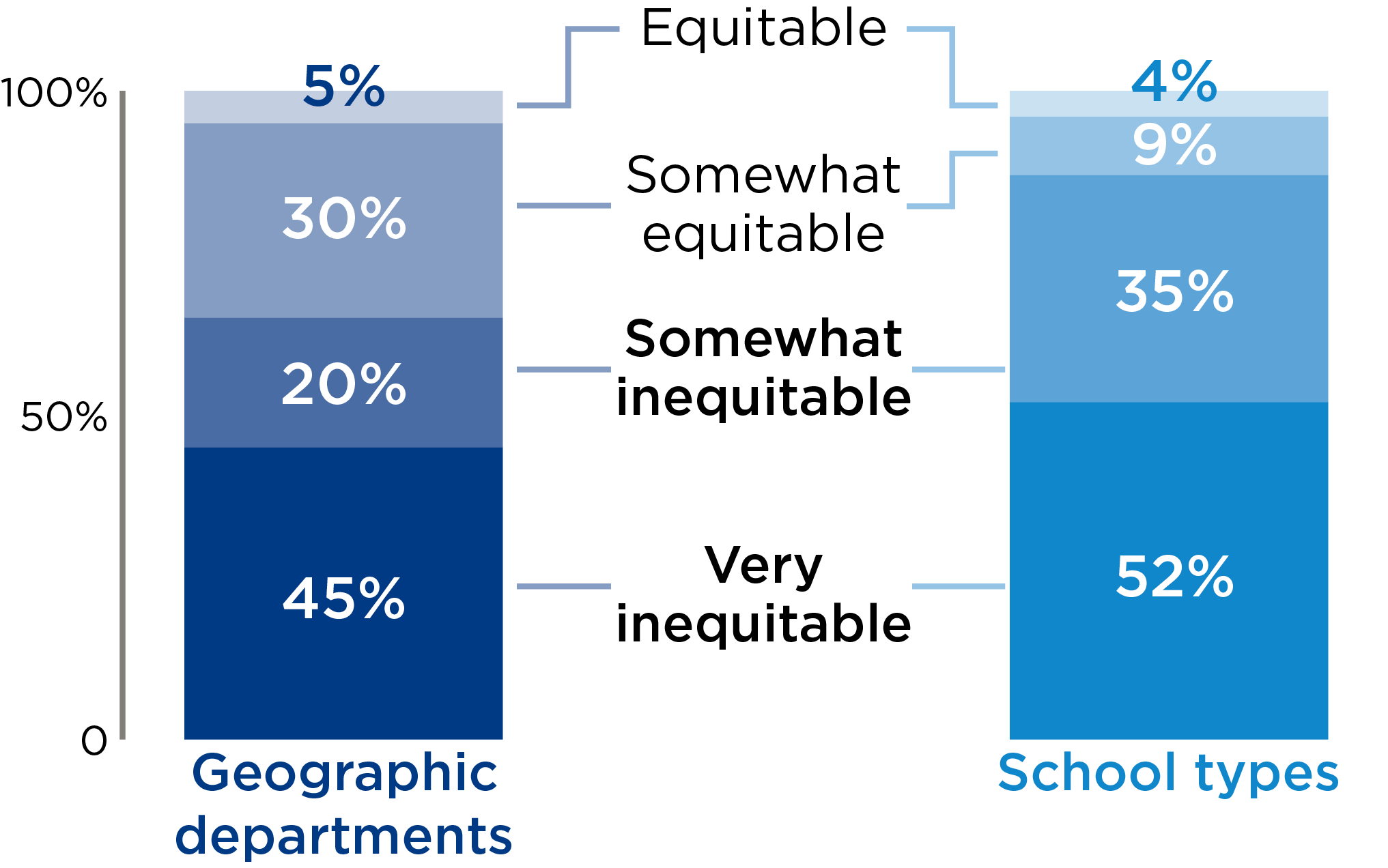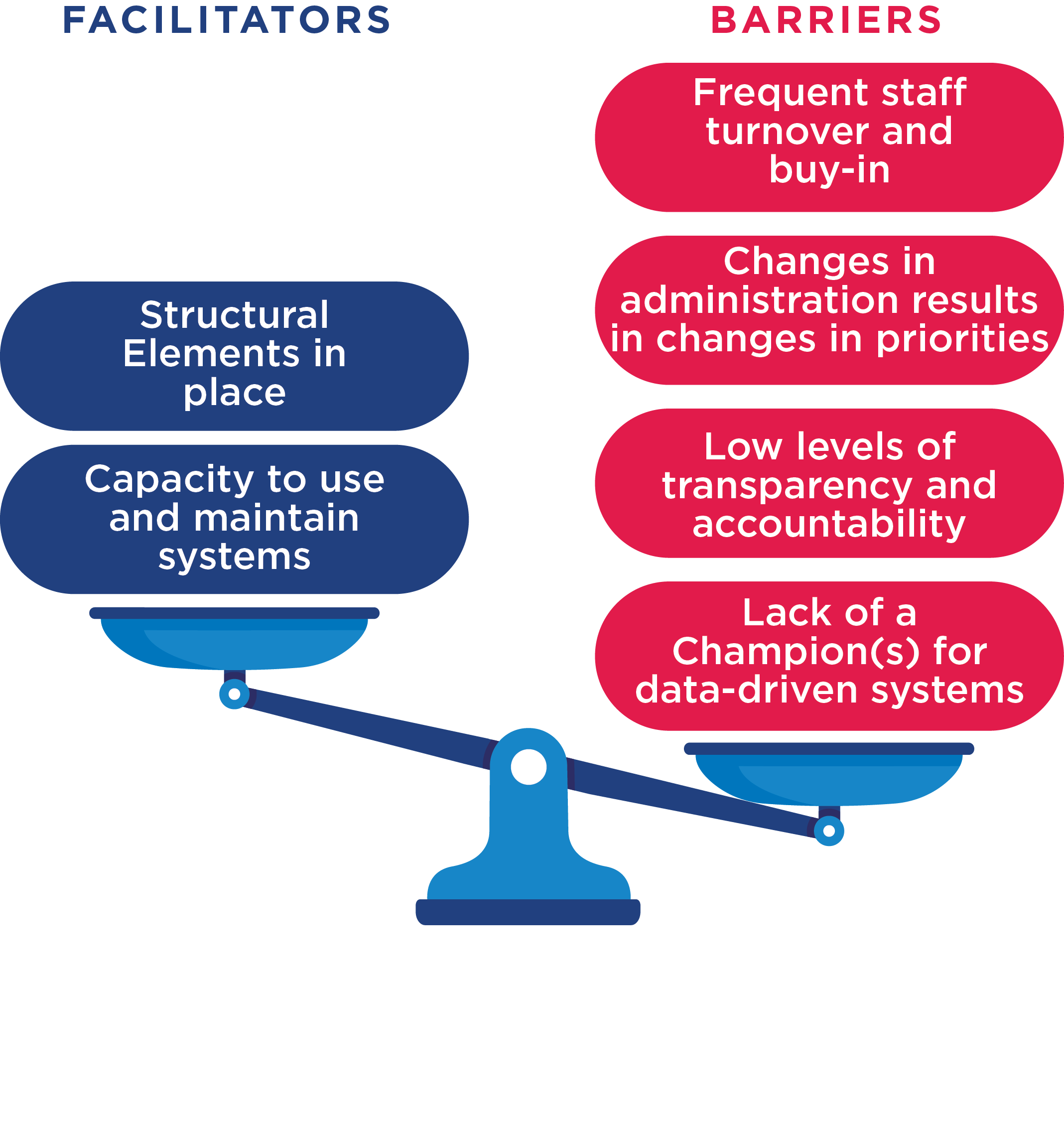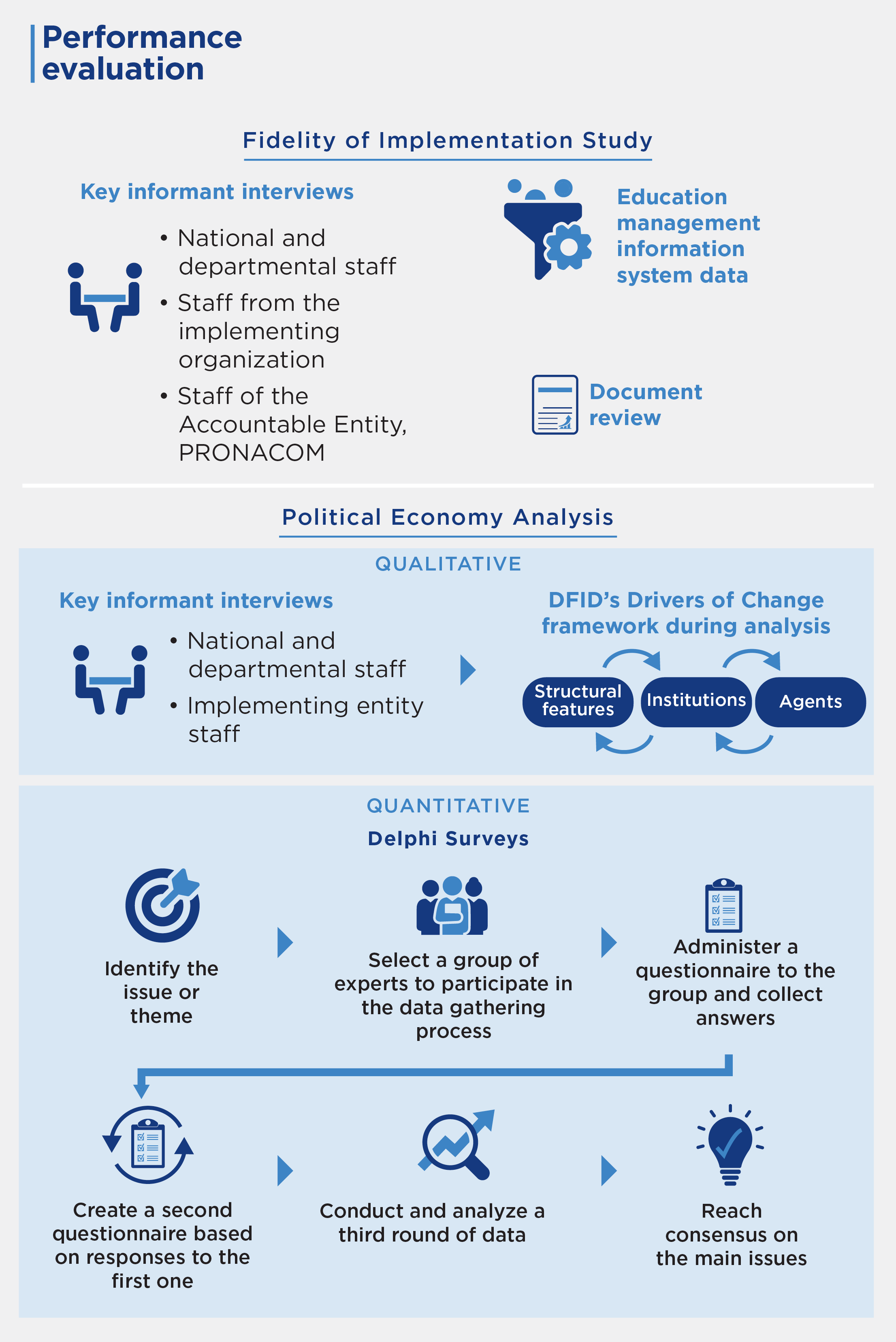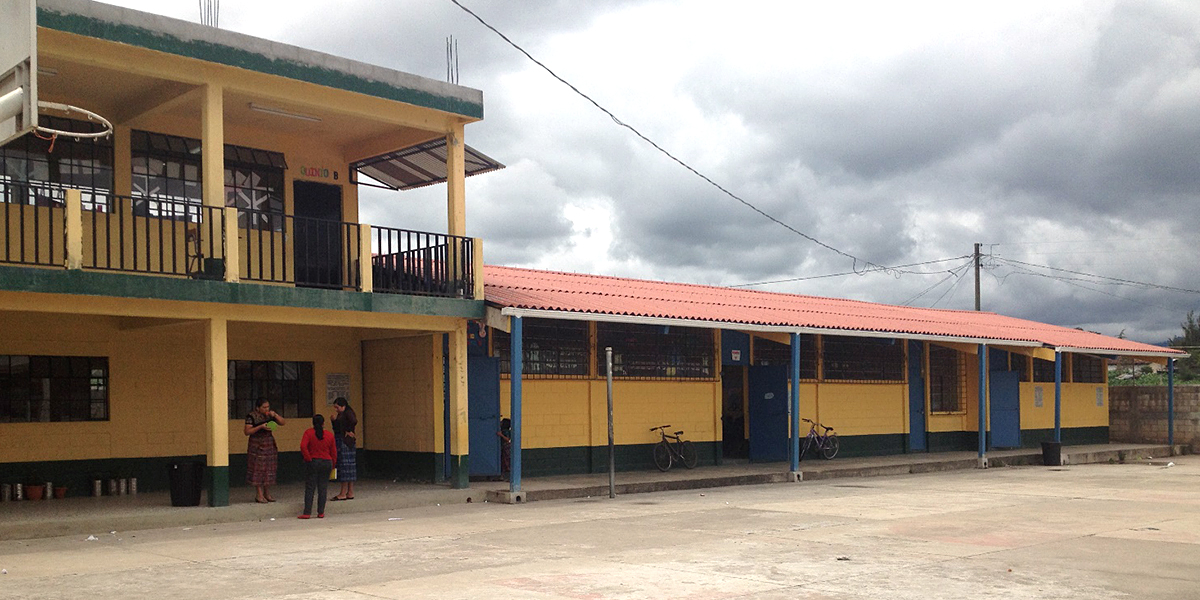Program Overview
MCC’s $28 million Guatemala Threshold Program (2016-2021) aimed to provide quality educational opportunities for Guatemala’s youth that have relevance to the labor market, and mobilize additional government resources that are needed to address binding constraints to economic growth. The Education Project consisted of three activities: (1) Quality of Education in Support of Student Success; (2) Improving Technical and Vocational Education and Training; and (3) Strengthening of Institutional and Planning Capacity. This interim evaluation brief focuses on Activity 3.
Evaluator Description
MCC commissioned Mathematica to conduct an independent performance evaluation of the Strengthening of Institutional and Planning Capacity Activity of the Education Project. Full interim report results and learning: https://mcc.icpsr.umich.edu/evaluations/index.php/catalog/216.
Key Findings
Teacher Recruitment and Professional Development
- The Ministry of Education’s support for reform, the teacher’s union support, and the promise of stakeholder incentives led to a 2021 ministerial decree for teacher selection and recruitment.
- The lack of knowledge about the decree within the Ministry threatens its sustainability.
Service Standards for Planning and Budgeting
- The implementing organization (FHI360) developed and promoted seven learning standards to improve equitable lower secondary education, but this did not increase funding.
- FHI360 facilitated the creation of planning and budgeting tools for staff to use up-to-date data.
- Scarce resources, the lack of a champion within the Ministry to advocate for financial increases, and lack of public awareness are barriers to increased and sustained funding.
Decision Support Systems for Planning and Budgeting
- Respondents agree that educational resources are insufficient to implement the national curriculum.
- Lack of capacity, lack of a champion, and a culture of deprioritizing lower secondary continue to be barriers to improved quality of middle school education.
Evaluation Questions
This interim performance evaluation was designed to answer the following questions:- 1 To what extent was the implementer able to complete activities in accordance with the work plan?
- 2 To what extent did the Strengthening of Institutional and Planning Capacity Activity help improve decision-making and resource utilization in the Ministry of Education?
Detailed Findings
Teacher Recruitment and Professional Development

Stakeholder perceptions of the equitable distribution of qualified teachers across departments and school modalities (percentage). The majority of respondents believe the distribution of qualified teachers is inequitable.
Service Standards for Planning and Budgeting
The implementing partner conducted rigorous research to identify the learning standards for lower secondary and carried out activities to disseminate findings. Dissemination included meetings with key decision makers within the Ministry of Education, the Ministry of Finance, and members of Congress to present a diagnostic of lower secondary education, the causes of the challenges, the learning standards identified as potential solutions to those challenges, and the budget required to fund those solutions. While these efforts led to increased awareness of the learning standards, they were followed by only a small increase in resources available to fund secondary education during the project period. From 2017 to 2020, the budget for secondary education increased by 1.4 percent (adjusted for inflation). At the same time, the budget for preprimary and primary education grew by 14.3 percent. The budget did not reallocate funding to prioritize the learning standards, despite efforts by the implementing partner who worked with policymakers in the Ministry of Education and the Guatemala Congressional Finance Committee to advocate for increased funding. The 2020 budget proposal included 5.8 Quetzales million to pay for textbooks and additional funds for teacher training. However, these items did not appear in the final budget for 2020 or in the budget proposal for 2021. Scarce resources, the lack of a champion within the Ministry to advocate for financial increases, and lack of public awareness and action are barriers to improving funding for lower secondary education.Decision Support Systems for Planning and Budgeting

MCC Learning
- MCC should devote more resources to identify and advocate stakeholders with the power to influence the actions of those responsible for implementing policy reforms, when attempting to make politically difficult policy reforms such as the Teacher Selection Decree.
- COVID-19 was a major disruption, and this had a particularly negative effect on a political and institutional reform intervention where political attention and buy-in are crucial to the success of the intervention.
Evaluation Methods

The Fidelity of Implementation Study draws on multiple rounds of key informant interviews with national and departmental staff, staff from the implementing organization, and staff of the Accountable Entity, PRONACOM.. The study also draws on education management information system data, and a document review to examine factors affecting the design, implementation, and results of Activity 3.
The Political Economy Analysis uses a mixed methods approach. The qualitative approach to this analysis draws on multiple rounds of key informant interviews with national and departmental staff and staff of FHI360, the implementing entity, to gather information that allows us to employ DFID’s Drivers of Change framework during analysis (Warrener 2004). The quantitative approach draws on Delphi surveys to systematically gather and consolidate opinions about the system, its features and status, prior to the COVID-19 pandemic. It involves six main steps: (1) identifying the issue or theme, (2) selecting a group of experts to participate in the data gathering process, (3) administering a questionnaire to the group and collecting the answers, (4) creating a second questionnaire based on responses to the first one, (5) conducting and analyzing a third round of data as needed, and (6) reaching consensus on the main issues.
Next Steps
A final study covering the Education Project is underway and results will be available in 2023.2022-002-2726


